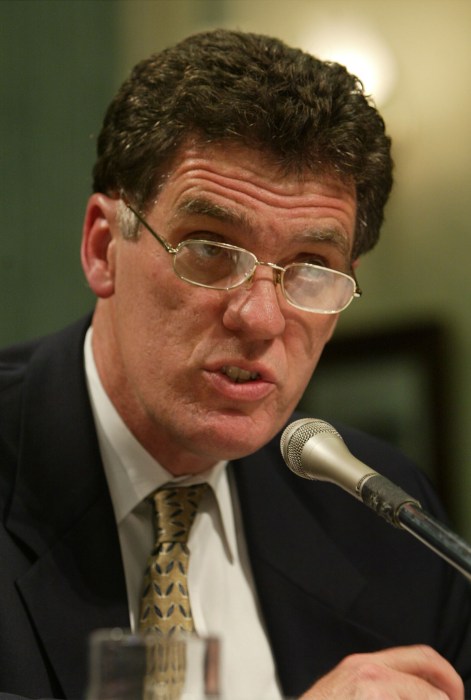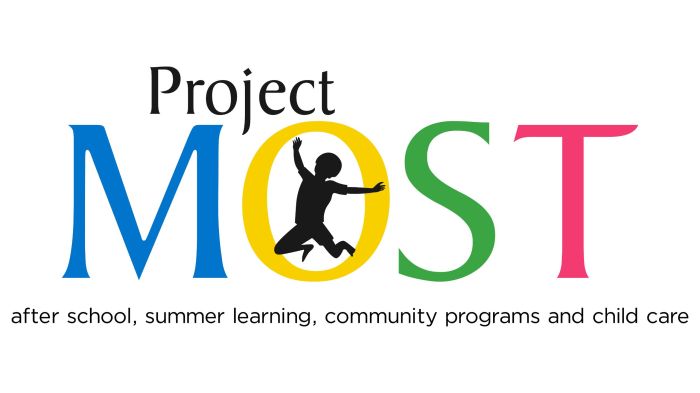Anti-bullying Advocate Speaks at Unitarian Universalist Congregation
Anti-bullying advocate John Halligan, who lost a son to suicide in 2003, was invited to speak to parents and Religious Education students separately at the Unitarian Universalist Congregation at Shelter Rock in Manhasset Jan. 8 and 23. Halligan, a retired IBM technician who lives in Farmingdale, has spoken at more than 500 schools and made more than 1,000 presentations in the U.S. and Canada since his son’s death.
Halligan urged parents to monitor their children’s use of the Internet and e-mail because he feels cyber bullying is more prevalent and damaging than physical intimidation. His advocacy led to the passage of anti-bullying legislation in Vermont in 2004 that requires schools to develop a plan for dealing with bullying. Halligan’s son Ryan, 13, an eight-grader at an Essex Falls, Vt. middle school, hung himself after being humiliated publically by a girl who had pretended online, at the request of a bully, to be interested in him. Halligan had not monitored his son’s computer use and did not realize the severity of his depression.
The advocate’s message to children at Shelter Rock was “One of the biggest mistakes you can make is not asking for help. You guys are loved beyond belief. You are never alone. You have adults that know what [bullying] is like and can pull you through it. Suicide is a permanent solution to a temporary problem.”
Halligan has been interviewed on CNN, Good Morning America, CBS Early Morning News, BBC World Radio, PrimeTime with Diane Sawyer, PBS Frontline, and The Oprah Winfrey Show. He has a website, www.ryansstory.org. He can be reached at 802-578-8229 or johnhalligan@ryanssto-ry.org. Halligan accepts about 200 speaking engagements a year and makes different presentations to adults and children. The presentations feature a moving video array of scenes from Ryan’s life.
“In the fifth grade,” Halligan told about 60 sixth through 12th-graders in Manhasset, “there seems to be a meanness switch that clicks on in young heads. Some kids start to say awful things about others. And sure enough, bullying problems started with Ryan in the fifth grade.” Ryan, a former special ed. student who had been mainstreamed by fourth grade, was bullied about his academic lack of performance and also his lack of athleticism. Halligan said he and his wife Kelly told their son, “It’s just words,” and to ignore classmates’ taunts.
Halligan said things seemed to go well for Ryan for a while after that, but in December 2002, Halligan came home from work and found his son with his head down on the kitchen table. “I hate school,” Ryan said. “I never want to go there again. Can you home school me? Can we move?” Since those were not options, Ryan said, “Can you teach me how to fight?”
John Halligan said he thought of the movie “The Karate Kid.” Ryan asked for boxing gloves, a heavy bag and a video of Billy Blank’s Tae Bo kick boxing program as Christmas gifts. “We did that program every night after dinner and homework,” Halligan said. “Then I told him, ‘If that kid ever lays a hand on you, I give you permission to whale on him.’ “
Eventually Ryan fought the bully after school one day and beat him. “I don’t think he is ever going to bother me again,” he told his father. By the end of seventh grade, Halligan said, Ryan felt that he and the bully were friends. But his trouble wasn’t over.
Ryan told the bully about a physical exam he had for appendicitis and the bully began spreading an online rumor that Ryan was gay. He became so upset that he sat out classes in the boys’ bathroom. After his son’s death, Halligan said, he opened up documents in Ryan’s computer that showed how upset he was about the gay rumors. “He desperately wanted to put a stop to it,” Halligan said.
The next summer, before eighth grade, Ryan struck up an online relationship with a pretty, popular girl. What he didn’t know was that the bully had put her up to it and that she was just pretending. And then she publically berated him in front of classmates that fall, saying “You’re just a loser. I don’t want anything to do with you.” The girl also copied Ryan’s e-mails and sent them to her friends, further humiliating him.
Halligan said a detective investigating his son’s suicide said that Ryan at one point said, “It’s girls like you that make me want to kill myself.” Halligan said, “I believe my son died of an illness called depression, an illness that was a result of all these bullying incidents. There’s no way we could blame it on one incident, one event.” Ryan said he reached out to the families of the girl and the bully and said each child made tearful apologies to him; the bully actually had continued to bully Ryan online after his death, saying that Ryan was “weak” and “gay” and that’s why he killed himself.
“It turned out ‘The Karate Kid’ plan was a stupid plan,” Halligan said. “It’s a different playing field today. It’s much more emotional than physical…By-standers are a big part of this problem. The audience, that’s where the permission comes from. If just one of the bully’s friends had said, ‘Hey, that gay thing? Just leave him alone.’ Or if one of the girl’s friends had said, ‘stop pretending to like Ryan online; that’s mean,’ who knows what would have happened.”
Halligan said conflict resolution programs at more schools are mostly ineffective. Bringing a bully and a victim together to shake hands embarrasses the victim and empowers the bully, who often turns up the intensity of the bullying. Halligan offers these suggestions:
• “Instilling in our kids that it’s not OK to be a bystander. The ones closest to the bully have the most power. You’ve got to tap into them. And we’ve got to discipline bystanders the same way we discipline bullies.”
• School staff, students and parents all have to be involved in efforts to raise awarness of bullying and create a climate in which it will not be tolerated.
• Students should be allowed to anonymously report the actions of bullies to school officials.
• Health curricula need to include discussion of depression, the warning sides of suicide and what resources students can use to get help.
• Parents should set rules for students’ computer use, including a time limit and having no secret passwords; parents should be able to access their children’s accounts.
• Parents should talk to their children about bullying and cyber bullying and tell them not to send e-mails or photos to strangers, nor should they give passwords to others. A reputation, he said, can be destroyed in one night.
Halligan said when he checked his son’s e-mail account after his death, he discovered that Ryan “was chatting with a kid who’d moved away that he’d reconnected with online—and the kid had a very dark outlook on life. The two commiserated that they’d kill themselves and ‘really make [schoolmates] feel bad.’ “ In their last chat, Halligan said, “ Ryan said, ‘Tonight’s the night; I’m gonna do it.’ And his friend said, ‘it’s about — time.’ “
(On Sept. 13, 2010, New York Gov. David A. Paterson signed into law the Dignity for All Students Act, which becomes effective July 1, 2012 and was passed to help eliminate discrimination, harassment and bullying in public schools. It requires boards of education to create a school environment that is free from bullying and to raise the awareness and sensitivity of school employees to the potential for it.)































